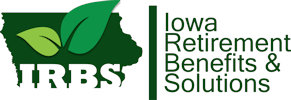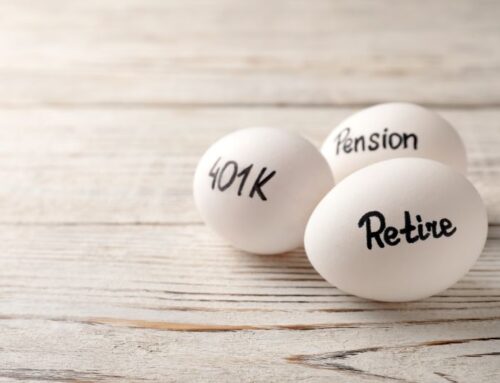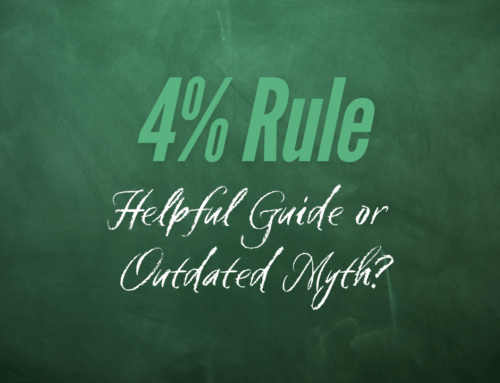What Is Tax-Smart Retirement Planning? & Why it Matters to You
What Is Tax-Smart Retirement Planning? & Why it Matters to You
Posted by Ethan Ball CRPC
Serving Cedar Rapids, Iowa, and Surrounding Areas.
What Is Tax-Smart Retirement Planning? & Why It Matters
When most people think about retirement planning, they think about saving. But if you’re 55 or older, the real challenge is no longer just about how much you’ve saved—it’s about how much you’ll actually keep.
That’s where tax-smart retirement planning comes in. After all, Uncle Sam is one of your largest “silent partners” in retirement. And without a strategy, you could end up paying more in taxes than necessary, leaving less for your lifestyle, healthcare, and legacy.
Here’s how to maximize your tax efficiency as you head into retirement.
1. Know Your Tax Bracket Before Retirement
Many pre-retirees assume their taxes will automatically be lower in retirement. That’s not always true. Between Required Minimum Distributions (RMDs), Social Security benefits, and possible pensions, your taxable income may actually keep you in a higher bracket than expected.
Action: Review your last tax return and project what your income will look like after age 65. Will RMDs push you into the 22% or 24% bracket? Planning now can help reduce future surprises.
2. Consider Roth Conversions—Before RMDs Begin 
If most of your savings are in tax-deferred accounts (like a traditional IRA or 401(k)), every dollar you withdraw is taxable. By converting portions of those accounts into a Roth IRA (ideally before RMDs start at age 73) you can lock in today’s historically low tax rates and enjoy tax-free growth for life.
3. Coordinate Social Security With Taxes
Up to 85% of your Social Security benefit can be taxable depending on your other income. Without a withdrawal strategy, you might unknowingly trigger higher taxes or even Medicare surcharges (IRMAA).
Action: Work with an advisor to map out when to claim Social Security and how to draw down your investments in a way that keeps your tax liability as low as possible.
4. Manage Required Minimum Distributions (RMDs)
RMDs can feel like a forced withdrawal, even if you don’t need the money. Left unmanaged, they can balloon your taxable income in your 70s and beyond.
Strategies to explore:
- Qualified Charitable Distributions (QCDs): Give directly to charity from your IRA after age 70½ to satisfy your RMD and reduce taxable income.
- Partial Roth conversions: Reduce the size of your future RMDs.
5. Don’t Forget About Healthcare & Medicare Taxes
Medicare premiums aren’t just based on your age—they’re based on your income. A higher income could trigger IRMAA surcharges, costing you thousands more per year. Strategic withdrawals and conversions can help keep your modified adjusted gross income (MAGI) below key thresholds.
6. Use Tax Diversification, Not Just Investment Diversification
You’ve heard of diversifying your portfolio—but have you diversified your tax buckets? A balanced retirement plan includes:
- Tax-deferred accounts (Traditional IRA/401k)
- Tax-free accounts (Roth IRA, Roth 401k, HSA)
- Taxable accounts (brokerage accounts, after-tax investments)
Having options lets you decide where to pull income from each year, giving you control over your tax bracket.
7. Plan for Legacy With Taxes in Mind
If you plan to leave money to children or grandchildren, be aware of the 10-year rule, which requires most non-spouse heirs to deplete inherited retirement accounts within 10 years. This could push them into higher tax brackets. Roth accounts, life insurance, and charitable strategies can help pass assets more tax-efficiently.
Retirement FAQs: Tax-Smart Strategies
Q1: Are Roth conversions still worth it after 65?
Yes—especially if you have a long retirement horizon or want to reduce the size of future RMDs. Even partial conversions can lower lifetime taxes for you and your heirs.
Q2: How do RMDs affect my taxes?
RMDs are fully taxable as ordinary income. They can also increase the amount of your Social Security that’s taxable and push you into higher Medicare premiums. Planning before age 73 helps reduce the impact.
Q3: Should I delay Social Security to reduce taxes?
Delaying can help, but it depends on your situation. If you have other tax-efficient income sources that cover expenses, waiting until age 67–70 can both increase your monthly benefit and keep taxes lower in the early years.
Q4: What’s the best way to reduce taxes in retirement?
There’s no single best way—it’s a combination of strategies: Roth conversions, tax-efficient withdrawal sequencing, charitable giving, and tax-diversified accounts.
Q5: Will my heirs pay taxes on inherited retirement accounts?
Yes, unless it’s a Roth. The SECURE Act requires most heirs to empty inherited retirement accounts within 10 years, which could create a large tax bill. Planning with Roth accounts or life insurance can soften the impact.
Final Thoughts
Tax-smart retirement planning isn’t about avoiding taxes—it’s about controlling when and how you pay them. The earlier you begin planning, the more flexibility you’ll have to protect your income, reduce stress, and enjoy the retirement you’ve worked so hard for.
Not sure if your retirement plan is tax-efficient? Schedule a complimentary Retirement Tax Strategy Review with our team. We’ll help you uncover opportunities to lower your lifetime tax bill and maximize your income in retirement.
Email us at info@iowaretirementsolutions.com
Call us at 319-423-3332
Click here to schedule your free consultation.
Investment advisory services are offered through Fusion Capital Management, an SEC registered investment advisor. The firm only transacts business in states where it is properly registered or is excluded or exempted from registration requirements. SEC registration is not an endorsement of the firm by the commission and does not mean that the advisor has attained a specific level of skill or ability. All investment strategies have the potential for profit or loss.




